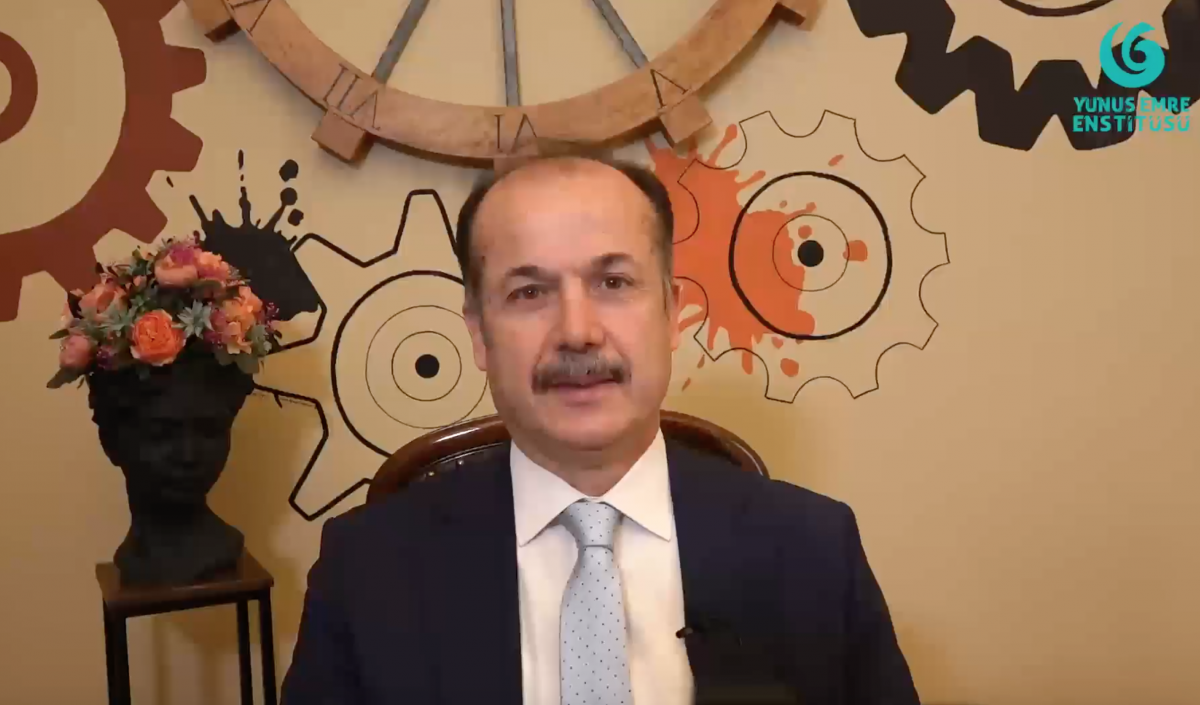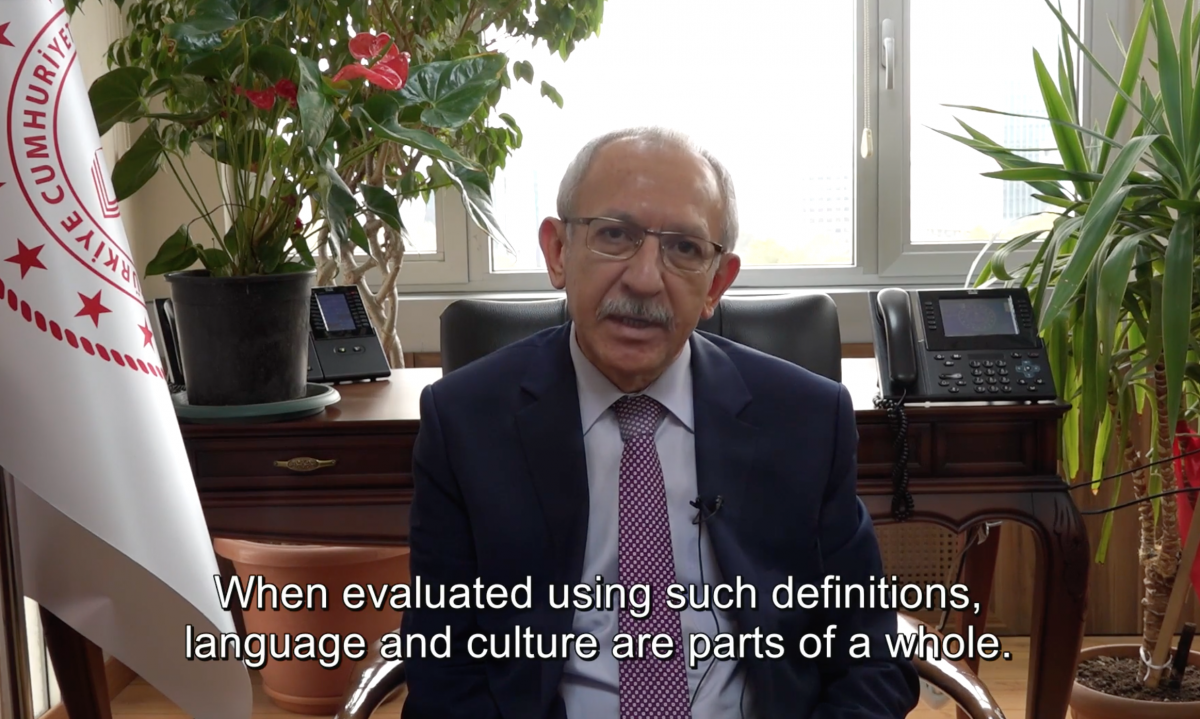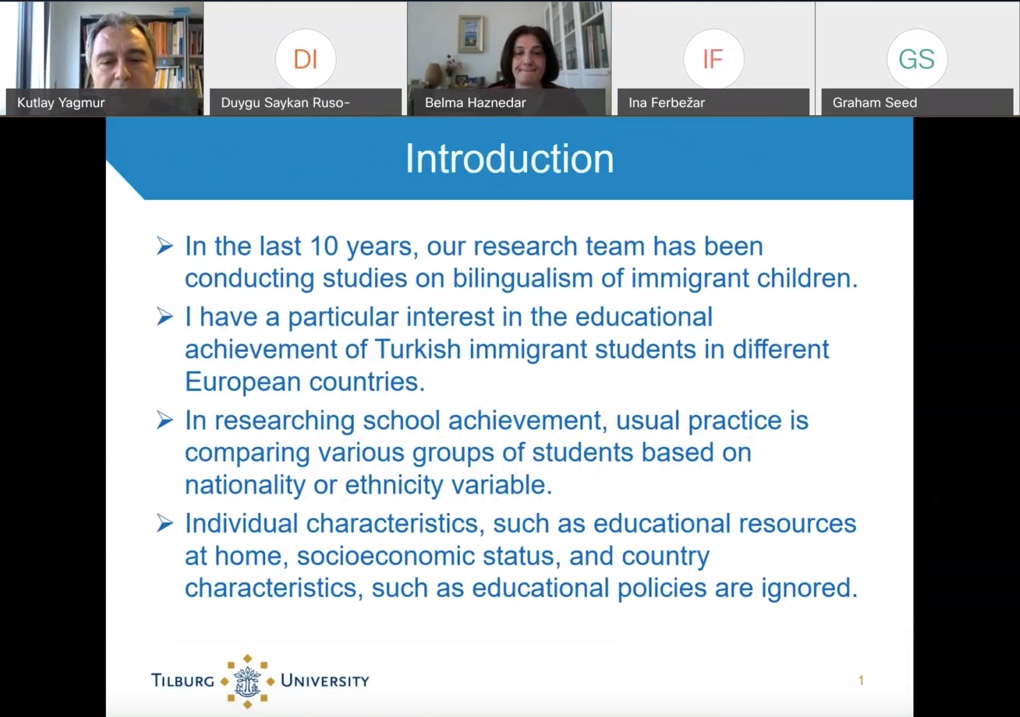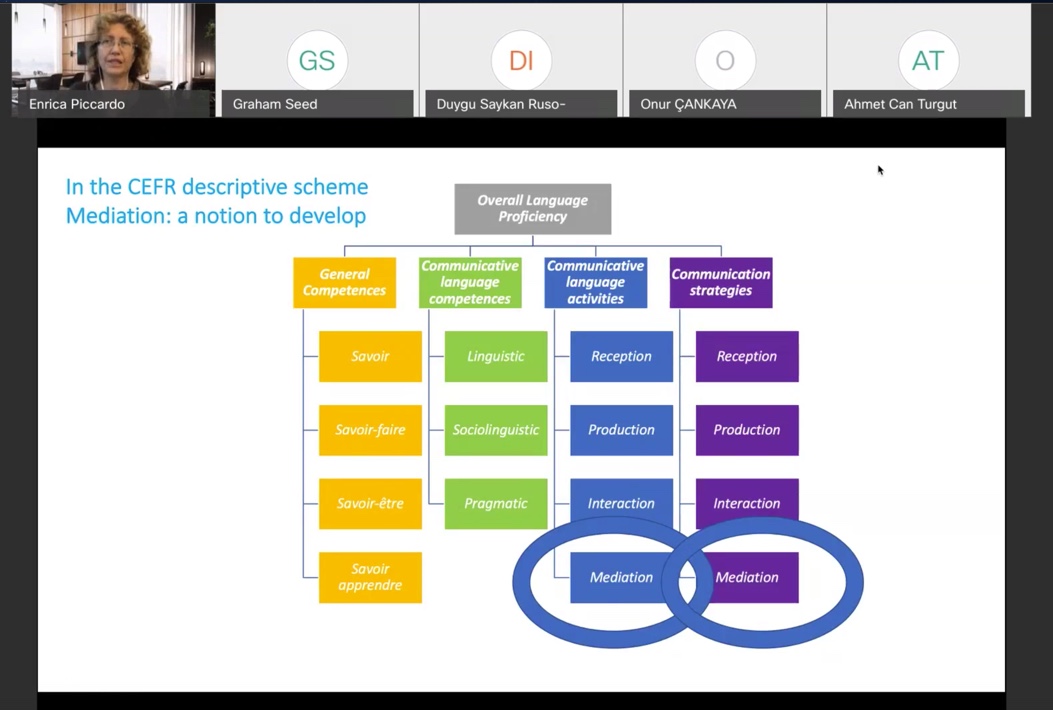ALTE 55th Conference Highlighted the Driving Force of Pluriculturalism in Language Learning
Association of Language Testers in Europe (ALTE) Conference was held on November 4-6, 2020 in cooperation with Yunus Emre Institute. Held on the impact of pluriculturalism on language learning and assessment, the conference hosted countries from all around the world including European countries and Turkey, in particular.
ALTE 55th Conference was held online on November 4-6, 2020 and hosted by Yunus Emre Institute. Organized in Turkey for the first time with the theme "Pluriculturalism: Implications for Language Learning and Assessment", the conference was attended by 164 persons from a myriad of countries across the world especially including European countries and Turkey.
During the conference, while scientists from various universities made presentations about language teaching and evaluation of multiculturalism, teamworks, special interest group meetings and permanent committee meetings were held in the event. A faculty member at Ankara University State Conservatory Department of Performing Arts, Assoc. Dr. Demet Gürhan (soprano) and Pianist Güler Demġrova Györrfy gave an online concert.

Delivering an opening speech during the conference, President of Yunus Emre Institute Prof. Şeref Ateş said: "Established in 2009, Yunus Emre Institute works through its 58 Cultural Centers established in 48 countries to promote Turkey, Turkish language, literature, history, culture and art and to strengthen friendship and cultural ties between Turkey and other countries".
Prof. Ateş emphasized that the Institute named after Yunus Emre, the Anatolian Sufi poet representing humanitarian values, humanitarian love and social peace would continue to cooperate with various institutions, support scientific and cultural activities and establish bridges among different cultures across the world.
"ISTANBUL IS A NEW LOCATION FOR ALTE"
Secretary General of ALTE Nick Saville, PhD, stated that this year's conference was completely online for the first time. Indicating that they integrated lots of novelties into this event, Dr. Saville said that they opened to all organizations from around the world "individual expert membership", "special interest groups" and "full membership status" for the first time. He stated that ALTE focused on adapting to video and online seminars in the wake of COVID-19 pandemic and they were at a position to hold an entire conference online. Stressing that social communication was of great importance for the conferences of ALTE held twice a year, Saville highlighted that Istanbul was a new location for ALTE and welcomed the participants in "Turkish".
"TURKISH IS SPOKEN BY 200 MILLION PEOPLE"

Prof. Ahmet Emre Bilgili, Director General of Higher Education and Overseas Education affiliated to the Ministry of National Education, said that language was the most vibrant tool of people and social life and had a very important place in today's pluricultural environment during his conference speech. He stressed that Turkish was one of the most ancient and common languages of the world and was spoken by 200 million people in different geographies of the world as a state language, official language or minority language and in different dialects. He indicated that the Ministry of National Education organized many education programs around the world to ensure that Turkish be studied as a foreign language. Prof. Bilgili expressed that the Ministry of National Education organized these programs intended for rendering Turkish a foreign language to be studies as per "the Common European Framework of Reference for Languages".
"TWO THIRDS OF THE WORLD HAVE ACCESS TO MORE THAN ONE LANGUAGE"
 Delivering a presentation on "Language Learning and Teaching in a Multilingual and Pluricultural World" during the conference, Prof. Belma Haznedar from Boğaziçi University stated that two thirds of the world population were estimated to have access to more than one language. Prof. Haznedar stressed that learning a language in a more multilingual and pluricultural world gradually gained pace. Indicating that the nature of language learning and teaching had changed in recent years, Prof. Haznedar said that any progress in this area affected not only the emergence of new theoretical frameworks, but also the learning and assessment methods intended for languages.
Delivering a presentation on "Language Learning and Teaching in a Multilingual and Pluricultural World" during the conference, Prof. Belma Haznedar from Boğaziçi University stated that two thirds of the world population were estimated to have access to more than one language. Prof. Haznedar stressed that learning a language in a more multilingual and pluricultural world gradually gained pace. Indicating that the nature of language learning and teaching had changed in recent years, Prof. Haznedar said that any progress in this area affected not only the emergence of new theoretical frameworks, but also the learning and assessment methods intended for languages.
CONCEPT OF "MEDIATION" IS PAVING THE WAY FOR A PLURICULTURAL ENVIRONMENT

During her speech, Prof. Enrica Piccardo said that the concept of "mediation" shedding light on communication between socialism and individualism was one of the fields of activity for psychology, pedagogy and social sciences. Prof. Piccardo also emphasized that the concept of mediation, only possible through a diversity of languages, paved the way for the emergence of a pluricultural environment as a tool among linguistic and cultural barriers.
At the conference, Prof. Dr. Kutlay Yağmur tried to find answer the question “What causes lower mathematics and reading performance of Turkish immigrant students?” in his presentation. Professor of Durham University in England. Dr. Michael Byram made a presentation titled “Potentials and limitations in the assessment of pluri/intercultural competence”. Prof. Dr. With Byram, Professor of the University of Toronto in Canada. Dr. Enrica Piccardo also organized two workshops. "Can interculturality be assessed in higher education?: Reflections on language teacher education", was discussed in a panel with Assoc. Dr. Cendel Karaman Emrullah Yasin Çiftçi and Tugay Elmas from Middle East Technical University.

